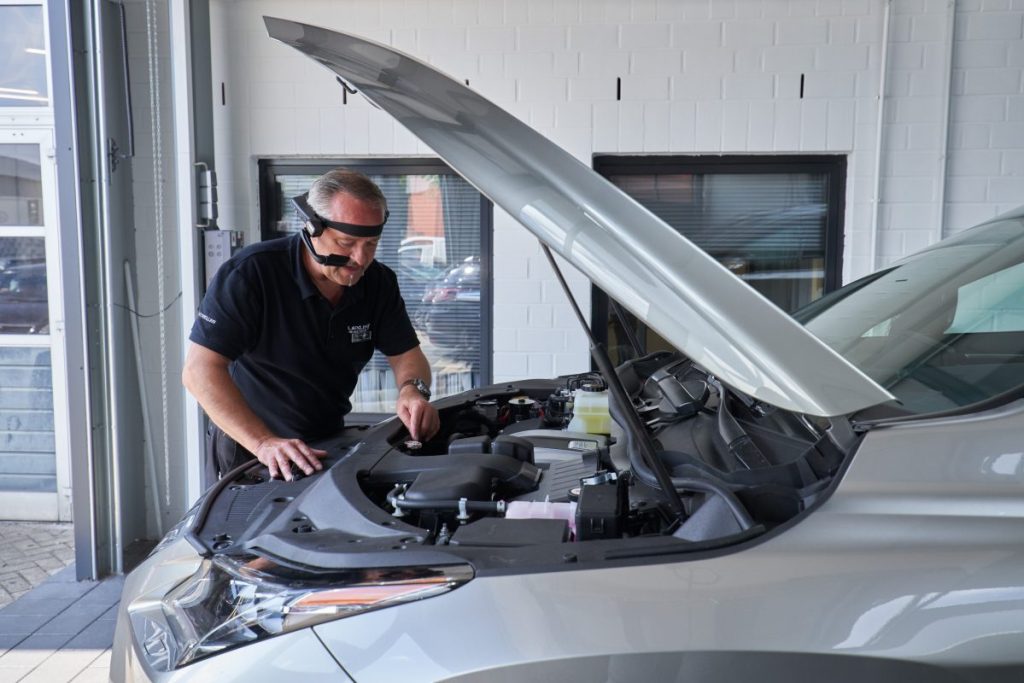AUTOMOTIVE WORKSHOPS EMBRACE DIGITALISATION


The pandemic disrupted industries, specifically the automotive sector. The operations halted, which led to a swift change in the industry. The stats reported a decline in sales by 71 per cent, 47 per cent and 80 per cent in China, USA and Europe, respectively.
Driving causes of sales decline were restrictions on international and domestic mobility. Consequently, it led to a major communication gap between engineers and experts. However, digital transformation in the industry has been a major success. Where automotive workshops have embraced digitalisation to recover from the pandemic and to make knowledge transfer and communication easier, the most growth and innovation is seen.
Automotive companies like Goodyear and Volkswagen depend on thousands of engineers, technical experts and other human resources to maintain, repair and service new models to achieve company objectives. The pandemic restrictions had an adverse impact on these companies due to the suspension of production activities. However, assisted reality wearables challenged the perspective of the need for automotive workshops, manufacturers and dealers to work on-site; a paradigm shift emerged, and digital transformation accelerated, giving rise to hybrid work culture.
Automotive companies, since then, have been deploying assisted reality solutions, such as the HMT-1 and HMT-1Z1, for seamless remote collaboration and technical assistance. As automotive workshops embrace digitalisation, engineers can conveniently assist service technicians without any need to bear hefty travelling expenses. Automotive manufacturers are better able to reduce delays in the process and ensure to deliver the vehicle to customers in the shortest time possible.
For example, Volkswagen, a globally-renowned automobile manufacturer, deployed RealWear assisted reality devices all across their facilities. As a result, they were able to increase repair efficiency by 93 per cent.
Digitalization via assisted reality solutions has also addressed the issue of the global labour shortage. It is a present-day economic trend where employees are resigning from their jobs on a voluntary basis due to multiple reasons. In such crises, digitalized knowledge transfer to service technicians and new engineers in the field has become a necessity. Conclusively, assisted reality wearables are enablers for a productive and sustainable workforce, specifically in the automotive sector.
For more information about how Assisted reality can transform the automotive sector, visit here.
ASSISTED REALITY ASSISTING THE GLOBAL AUTOMOTIVE SECTOR IN THREE WAYS
Here are three key ways assisted reality is facilitating the success of automotive companies:
Making remote collaboration and assistance easier
Assisted reality solutions help remote expert engineers and on-field service technicians to connect with each other in real-time and resolve the issues two times faster. Devices, such as HMT-1 and HMT-1Z1, facilitate video collaboration through which experts can provide immediate assistance to troubleshoot complex problems and resolve them right there and then. It eradicates the need for experts to make time in a tight schedule and fly for on-site assistance. The hands-free feature allows service technicians to connect, troubleshoot and fix problems at the moment. AR wearables also facilitate daily learning that develops workers for future challenges.
Training for critical work conditions
Workers often have to deal with work in harsh conditions, and using a handheld device for expert instructions can be extremely risky. As automotive workshops embrace digitalization, cutting-edge assisted reality technology integrated with unique software capabilities allows frontline workers to get directions hands-free. Moreover, using voice command technology, workers are also able to launch video calls or navigate a document to observe safety precautions while dealing with a critical situation.
Streamlining the annual testing process
The global automotive manufacturing sector has to undergo various tests, such as emissions and safety, on an annual basis. However, the manual testing process can be slow and prone to errors, and it can be risky when the stakes are high. It is necessary that automotive workshops embrace digitalization to streamline the annual testing process.
Assisted reality wearables have created a paradigm shift in how engineers and service technicians collaborate and transfer knowledge. The benefits of deploying assisted reality wearables are remarkable. Not only do they aid service technicians in real time, but they also save travelling costs and streamline communication. The hands-free and noise-cancellation features embedded within the devices enable on-field employees to work in a secure setting. The benefits of the mentioned features allow workers to perform tasks without any obstruction and need for handheld devices. In order to increase effectiveness, businesses need to identify the objective before deploying assisted reality solutions in the automotive sector.
For use cases or a free demo, contact us today!

